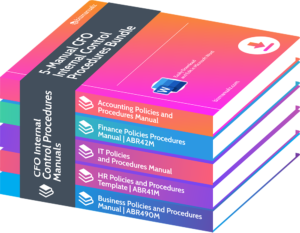How to Buy a Business

Buying a business can be daunting. But with the right know-how and guidance, it can be incredibly lucrative. Aspiring entrepreneurs often quest for the perfect opportunity, navigating through mergers and acquisitions. This article is a guide to steer you through the intricate journey. How to buy a business.
Buying a Business
Consideration and planning are key when entering the business acquisition world. Understand market trends, financial statements, legal implications, and industry-specific challenges. Research potential target businesses that fit your vision and expertise.
Assemble a team of professionals – lawyers, accountants, finance experts – for a smooth acquisition process. They will provide insights, conduct investigations, negotiate agreements, analyze data, and ensure legal compliance. All are key to safeguarding your investment.
Facebook’s acquisition of Instagram in 2012 for $1 billion is a fascinating example of the intricacies of purchasing a business. Kevin Systrom and Mike Krieger’s photo-sharing app grew in two years to an internet sensation. Mark Zuckerberg seized the opportunity to expand their social media empire. This shows how entrepreneurs must be adaptive in today’s business world.
Research and Preparation
Research and preparation? Crucial steps when buying a biz! Lay your foundation for success. Conduct thorough research. Make informed decisions. Minimize risks. Here’s a guide.
- Define goals. Why buy? Financial stability? Personal fulfillment? Expansion? Focus your search. Evaluate potential businesses.
- Market research. Industry trends. Market demand. Competition. Growth potential. Informed decisions. Viability. Profitability.
- Financial health. Review records. Profit & loss. Cash flow. Balance sheets. Tax returns. Hire an accountant. Expert insights.
- Legal & regulatory compliance. Local regulations. Licenses. Permits. Zoning laws. Environmental regs. Contracts. Legal obligations. Avoid surprises.
- Seek professional guidance. Lawyers. Accountants. Business brokers. Streamline the process. Handle legal matters. Negotiate terms. Valuable advice.
Be transparent with the seller. Analyze industry trends. Consider qualitative/quantitative factors. SWOT analysis. Diligent market research.
Research & prep are key when buying a business. Goals, research, financials, legal, pros. Follow steps & additional suggestions. Make well-informed decisions. Increase chances of success.
Finding a Business
Having a clear understanding of your goals and aspirations is essential when looking for the right business to buy. Your expertise, financial resources, and risk tolerance must be taken into account.
To help you out, here’s a table of key elements to consider when finding a biz:
| Key Factors | Description |
|---|---|
| Industry | The sector or niche the business operates in |
| Location | Where the business is located |
| Profitability | Financial performance & return on investment |
| Competition | Level of rivalry in the industry |
| Growth Prospects | Potential for expansion & future success |
Analyzing these factors carefully can help you narrow down your choices. However, you need to go deeper into each one for a comprehensive evaluation.
Other details like customer demographics, brand reputation, legal obligations, and potential risks of buying the business must also be considered. This will give you a more comprehensive view of the opportunities available.
Evaluating the Business
When buying a business, evaluating its value and potential is a must. Here’s a breakdown of main points to look out for:
- Financial Performance: Be sure to examine the financial performance of the business, such as revenue, profit margins, and cash flow.
- Industry Analysis: Conduct an industry analysis to grasp market dynamics and spot growth chances.
- Market Position: Look at the market position in relation to the competitive landscape and target audience.
- Customer Base: Check the size and loyalty of the customer base, special selling points, and any competitive edges.
- Competitive Advantage: See if processes and systems are efficient and suitable for scaling up.
- Operational Efficiency: Make sure the business complies with all laws.
- Legal Compliance: Get accountants, lawyers, and industry professionals to help with the assessment for a more in-depth evaluation.
Pro Tip: Get accountants, lawyers, and industry professionals to help with the assessment for a more in-depth evaluation.
Financial Considerations
Financial factors are vital when buying a business. Understanding them assists with making smart decisions and ensuring profitability. Let’s explore some important points to consider:
| Consideration | Explanation |
|---|---|
| Valuation | It’s essential to determine the fair market price of the business accurately. |
| Financial Statements | Check income statements, balance sheets, and cash flow statements carefully. |
| Sales and Revenue | Analyze sales trends, revenue sources, and customer base to assess the business’s financial strength. |
| Expenses | Assess the cost structure, including fixed and variable expenses, to spot potential savings. |
| Debt and Liabilities | Look at existing debts and liabilities to be prepared for any surprises after acquiring the business. |
| Profitability | Look into profit margins, return on investment (ROI), and growth potential for long-term sustainability. |
Also, it is significant to think about unique details specific to the business being purchased. This may involve industry-specific metrics or peculiarities in their financial records. Doing thorough research into these aspects gives a comprehensive understanding of the business’s finances.
To make the transition after buying a business go smoothly, here are some tips:
- Get Professional Advice: Hire an accountant or financial advisor experienced in mergers and acquisitions (M&A) for expert help during due diligence.
- Do Due Diligence: Thoroughly investigate all aspects of the business’s finances. Look beneath the surface for any hidden risks or potential issues.
- Negotiate Terms: Utilize your knowledge of the financials to negotiate advantageous purchase terms with regard to price, payment structure, and contingencies.
- Find Financing Options: Explore the various financing options available for buying a business while thinking about interest rates, repayment terms, and collateral requirements.
By taking these tips into account, buyers can make sound financial choices when purchasing a business. Getting professional advice, doing due diligence, negotiating keenly, and exploring financing options help reduce risks and guarantee an effective acquisition.
Negotiating and Closing the Deal
Negotiating and finalizing the deal is key to purchasing a business. It takes careful decisions and good communication for a successful transaction. Here’s a 6-step guide to help you:
- Start the conversation: Tell the current owner about your interest in buying the business and what your goals are.
- Do due diligence: Check the financial records, assets, and liabilities of the business to know its value and potential risks.
- Figure out your offer: Based on your evaluation, decide an offer that reflects the business’s worth. Think about market trends, growth prospects, and any advancements or changes.
- Negotiate: Talk with the owner to settle on the terms of the deal. Focus on the purchase price, payment structure, transition period, non-compete agreements, and contingencies.
- Get legal advice: Have a legal expert review contracts and make sure all legal requirements are fulfilled. They can also give guidance throughout the negotiation.
- Close the deal: When both parties agree, sign legally binding documents and transfer ownership rights. Make sure all paperwork is accurate.
It’s important to stay professional and honest during negotiations, while being understanding of the seller’s worries. A famous entrepreneur once bought a failing company through wise negotiations. They changed the marketing techniques and streamlined operations, transforming it into a success within a few years.
Good negotiation skills can help you get better deals when buying a business. With the right thought and communication, you can increase your chance of closing a deal that goes with your business goals.
Transitioning and Managing the Business
Transitioning and managing a business is key. You have to integrate your plans into the existing framework. For success, prioritize communication & build trust with staff. Also, create a gradual handover plan.
Open lines of comms are important. Regular team meetings & one-on-ones will help build trust & a positive work environment. Involve employees in decision-making if you can. This will create a sense of ownership & commitment.
You must build trust with customers & suppliers. Tell them about changes or procedures. Reassure them about quality products & services. Get feedback & address any concerns immediately.
A gradual handover plan is ideal. You can get familiar with the biz before taking charge. Also, you can learn from the previous owner’s experience. This will set your venture on a path to success.
In short, communication, trust & a gradual handover plan are essential for successful transitioning & managing a business.
Buy a Business
In conclusion, buying a business needs careful thought and advance planning. Research properly, look over financial reports, and get help from experts in legal matters. Also, see if the business can expand, and if it fits your long-term plans.
Take a look at the competition and market trends to make an educated choice. Plus, when discussing the purchase deal, include rules that benefit you and are adaptable. Think over funding options and get the necessary licenses and permits.
Frequently Asked Questions
FAQs – How to Buy a Business?
Q1: What are the key steps involved in buying a business?
A1: The key steps in buying a business typically include performing due diligence, negotiating the purchase agreement, securing financing, obtaining legal and financial advice, and completing the transfer of ownership.
Q2: How do I determine the value of a business?
A2: The value of a business can be determined through various methods such as market comparisons, assessing the financial statements, evaluating the business’s assets, and considering future earning potential.
Q3: What should I consider when evaluating a potential business for purchase?
A3: When evaluating a potential business for purchase, factors to consider include the industry outlook, competition, financial performance, customer base, location, operational risks, and growth potential.
Q4: Should I hire a business broker to help with the buying process?
A4: Hiring a business broker can be beneficial as they have expertise in buying and selling businesses, can help identify suitable opportunities, negotiate on your behalf, and navigate complex legal and financial aspects of the transaction.
Q5: What legal documents are required for buying a business?
A5: The legal documents required for buying a business may include a purchase agreement, non-disclosure agreement, bill of sale, lease agreement, and any necessary licenses or permits.
Q6: How can I finance the purchase of a business?
A6: Financing options for purchasing a business may include personal savings, bank loans, Small Business Administration (SBA) loans, seller financing, venture capitalists, or bringing in investment partners.
















Leave a Reply